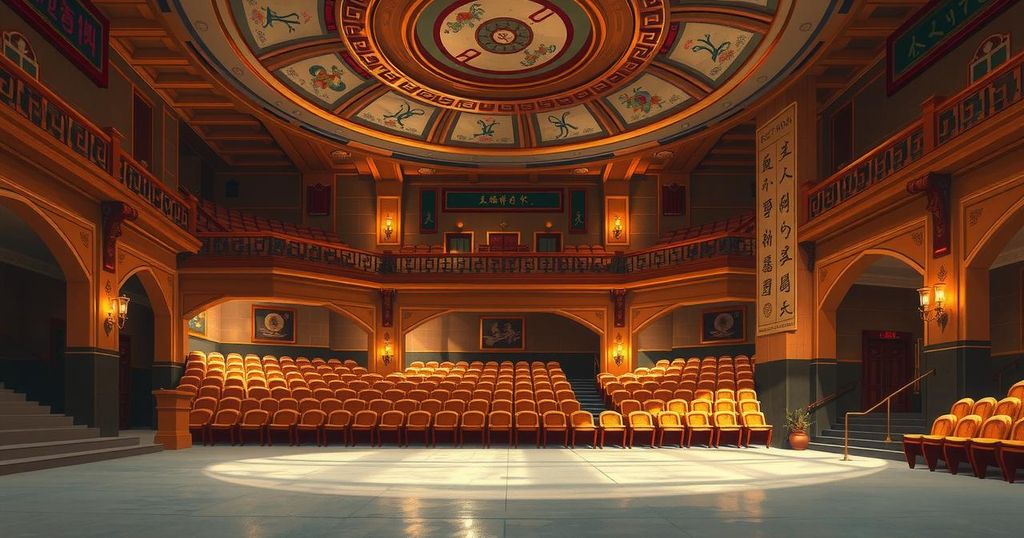Iraq’s cultural events suffer from low public attendance, primarily engaging specialists. Efforts by the Ministry of Culture include various initiatives, yet historical associations with authority and repetitive themes hinder broader public interest. Experts recommend a more strategic approach to attract diverse audiences.
Despite ongoing governmental initiatives to foster Iraq’s cultural landscape, public participation in cultural events remains disappointingly low, primarily attracting specialists rather than a general audience. Ahmed Al-Aliawi, spokesperson for the Ministry of Culture, indicated that the ministry and its twenty-two departments actively coordinate various events, including festivals, art exhibitions, and theatrical performances, demonstrating their commitment to cultivating arts and heritage.
Al-Aliawi remarked, “While some events operate independently, the ministry plays a supervisory and supportive role in book fairs, poetry readings, theater and cinema festivals, and intellectual seminars.” Poet and critic Mohammed Al-Kaabi highlighted that the historical association of cultural events with governmental authority has diminished their relevance to broader societal issues, adversely affecting turnout.
Al-Kaabi expressed, “The sheer number of cultural organizations has also contributed to audience disengagement, as many still perceive these events as politically motivated.” He further noted that individuals who attend are often disconnected from the cultural discussions pertinent to the wider population, including university students who could greatly gain from intellectual pursuits, instead of being engrossed in social media.
Visual artist Mohammed Al-Mutairi observed that cultural activities remain largely insular, confined to specific artistic circles. He stated, “Poets attend poetry festivals, theater enthusiasts follow theater events, and visual artists focus on fine art exhibitions.” Al-Mutairi recognized the International Book Fair as an exception, where a diverse audience of writers, artists, and students consistently congregates.
Theater artist Zaki Al-Jaber criticized the repetitive themes and formats prevalent in festivals, attributing them as factors contributing to dwindling interest amongst audiences. He noted, “Many attendees step outside to smoke or chat, leaving venues half-empty,” while pointing to poor venue selection and inconvenient scheduling as obstacles to better engagement. Al-Jaber urged for strategic changes in event planning, advocating for a greater diversity in topics and the inclusion of new voices to attract a broader audience.
In summary, Iraq’s cultural events struggle with low public turnout despite government efforts and various offerings. Historical ties to political authority, perceived political motivations, and repetitive themes contribute to audience disengagement. Enhancing cultural outreach through innovative programming and better scheduling could foster greater inclusivity and interest in Iraq’s rich cultural heritage.
Original Source: shafaq.com






